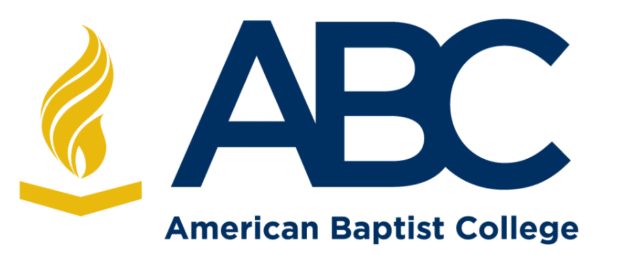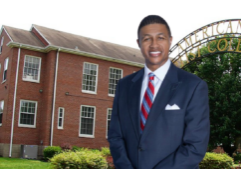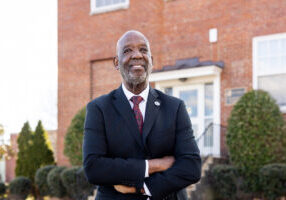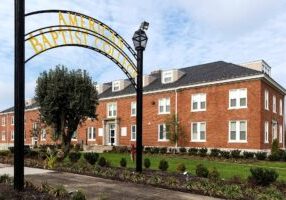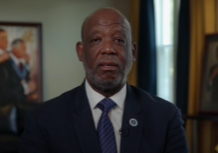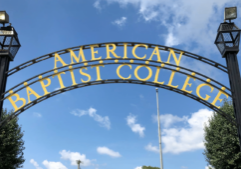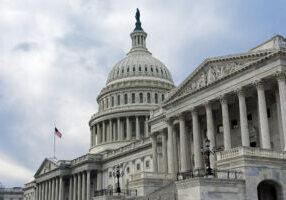Cultivating Wellness with a Spirit of Hope and Justice
Delivered: September 14, 2021
At the beginning of each academic year, the convocation is our ritual way of renewal, refocusing our energies and resources to carry out the mission of our beloved school, American Baptist College. It is a special event that signals we are yet fulfilling our utmost passion to educate students in every way possible cultivating their minds for critical thought and liberating their spirits for embracing what really matters in the world. A few weeks into the semester you are getting into the rhythm of focus study and classroom academics. I want to commend you for making the necessary adjustments to hybrid learning getting to know the faculty and the staff who have made your academic success their highest priority. In a large measure, coming through a pandemic that’s still with the nation, personal health challenges, keeping our campus safe for learning, I am deeply grateful for our learning community.
I want you to know how proud I am of this institution and each of you. In these chaotic times, covid-disease, climate disasters, dominant movements to control life on terms that contradict truth and sound ethics, we dare hold before students and boldly before the world our vision of transformative education.
I fine inspiration for this convocation address for introducing a conversation about Cultivating Wellness with a Spirit of Hope and Justice. I introduce just a few ideas within the limits of this convocation for later critical conversations. We know that in this nation health of the body and health of the mind, mental operations, health of religion are severely split in social divisions and traumas in every institution and community across this nation. There is German term that describes what we are up against, “Kulturkampf,” which means a battle for control by dominant authorities to define “who people are and who people ought to be,” control over the knowledge of history to preserve the status quo. There are splits throughout our human landscape between the sacred and secular, capitalism and poverty, prayer and politics, church and world, religion and ethics, theory and practice and the list goes to creeds and deeds, pros and cons about marriage, sex, and birthing. As Robert McAfee Browns says education and life itself can get caught up easily in the “huge deception and fallacy of this split.” How do we educate in this gallimaufry, a mixture of truth, deception, and division? Our particular niche of education is a bold offering of how we empower students to overcome the fallacy of this split. The question for us as educators given our ebony history and Africa origins and traditions of religious faith what does it mean to cultivate wellness in the spirit of hope and justice?
The first thing we can say is education is about cultivating. We cultivate the mind of students with a particular commitment to history of freedom and moral struggle in this nation for wholeness and peoplehood. Cultivating the minds of students with the history of justice, movement histories, the history of politics, the literature of social traditions, the history of religion, the history of the church, the history Black homiletics and hermeneutics, and the history of and impact of the Biblical story on the world. The basic interest of education is what does this history mean for wellness of life, how it informs hope to inspire justice to heal life as God intends. There are many ways to approach this vision of education, but I come at it today from the perspective of history through blood, sweat and tears of those who gave us alternatives to life and liberation. Human history unfolds every moment of your and my existence. We make history even if the history we make never gains visibility. Unaware now, to each student here is a history maker, potential change agent. Their stories are history making events. As Howard Thurman would put it, “all life is involved in the operation of history, of law, the operation of logic, the operation of antecedents, consequences, ethics, the mutuality of reaping and sowing. If any of you want to alter the history of the world, there is only one way by which it can be altered, and that is to alter the events which in turn will influence the course of consequences.” My message to each student here not to exclude ABC’s excellent faculty and staff is that you are an event in history – the day of your birth was an event. Every birthday is an event. Every formation, rite of passage, years in family, kindergarten through high school up until now on the holy hill you are more than a collection of activities, you are an event in history. Overcoming the split, the divisions, the fallacy is what your education is all about, it provides you with a blueprint to step into the character of God.
For this blueprint, I turn to a first century figure who gave the character of God human form and expression. Of course, that figure is Jesus of Nazareth who so intrigues us to learn more of his way, more about not only what and how he taught but why what he taught what he taught that channels both human history and eternal realities even to this day. There is a caution that we must observe when talking about Jesus. New Testament scholar Albert Nolan says, we need to rediscover the first century “Jesus before Christianity,” before creeds, doctrines of western logic, civil bias and religiosity distorted and conveniently recreated Jesus in the image of its own politics, history, cultural biases. Jesus has been more frequently honored and worshipped for what he did not mean than for what he did mean. The things Jesus opposed most strongly in the world of his time are more expansively preached than the things he taught. Jesus did not teach profit over people. Jesus did not teach righteousness for the soul without justice for the body. Jesus did not teach social and clan loyalties above loyalty to God. Jesus did not teach a religiously exclusive ethic. But Jesus did teach putting the righteousness of love first in the service of life. Jesus did teach an inclusive ethic greater than self-centered ambition and material possessions. Jesus did teach politics of compassion to overcome social pain, personal alienation, and estrangement from God and community. If there is a charge to ABC regarding our commitment to education, particularly for ebony people who know the history of the Lord’s liberation and respond to the call to be a free people, we need to lead the way of return to the true source of our being and spirituality.
It is interesting because Jesus overcame the great fallacy in his thought and life. It can hardly be contested that the basic message of Jesus and of the Bible is salvation. What can be contested is what is means to say that the basic message of the Bible is salvation. The Latin root of our English word “salvation” means “health” and “wholeness,” wholesomeness. It is the fundamental connection with health and healing that enables us to recapture the biblical understanding of salvation as dealing with the whole person. Paul Tillich, who has written widely on this point, sees salvation as the healing that overcomes brokenness and division within our lives: “Healing means reuniting that which is estranged, giving a center to what is split, overcoming the split between God and ourselves, ourselves and our world, as well as the splits within ourselves.
Jesus pictures an alternative human history; he sees a different event than the empire reality in which he was born, and the religious inheritance passed on to him. Jesus envisions people in the world will come judge events, human action, and activity through a difference lens – through the lens of hope intersecting justice, human wellness or salvation ushering in the kingdom of God, or in modern vernacular of ethicist Peter Paris’ kinship of all people under the parenthood of God or Martin Luther King, Jr.’s a world house of beloved community. Jesus of Nazareth was an event in history. We wrestle with the same problems of history as did Jesus. Life is more than a mechanical formula, materialistic operation. As in the life of Jesus there is always operative in us a creative human spirit to elect an alternative to that oppresses and violates the logic of compassion and justice.
If education at it best means anything, it is a time for self-purification to overcome the division, split and deception of life. On the mountain of transfiguration, we see the mystical inner purity of Jesus life come forth. Peter, James, and John have a front row seat to the mystical event. The exodus liberator Moses shows up in the mystic scene. Perhaps Moses reminds Jesus that “there are few words or events more dangerous than liberation. It calls upon us to take risk, to change priorities, to surrender our sense of self-importance, to be more concerned about with doing the work, doing God’s will than our own will. Can one’s private faith in God, activism be a vehicle for changing public policy, if so, it require liberating work. Pharoah unsuccessfully tried to persuade Moses that God had nothing to do with Egypt’s domestic policy of oppression. Moses led a great exodus from Egypt’s cultural fallacy and oppression. Jesus was to lead an exodus of continuous liberation in the world.
The prophet Elijah shows up on the mystical mountain. He was a prophet standing in the breach between justice and exile calling the people back to God. Jesus’ life was that of a prophet with the spirit of Elijah calling for a movement back to compassion, justice, love for the least in society.
What happened on this mystical event, revelation on the mountain was self-purification, a quality of clarity, connection with history and what can become historic, become eternal. What happened on the mountain called Jesus and his disciples to the valley. The purity of his life radiates a quality of God, a high morality in character, a commitment to God’s way in the world that would affect the lives of Jesus and the disciples but other people. Jesus is life-affirming rather than life-denying. Everything we do with our students and with each other ought to be life-affirming creating wellness life-denying.
The responsibility of education and of students and faculty is a double responsibility. I will purify myself that I may get from under the necessities of the status quo existence of life. But in the purification of myself I recognize the responsibility to radiate a quality of living that will influence the minds, the thinking, and the processes of the people around me. It helps me to do no harm to life and the lives of others.
